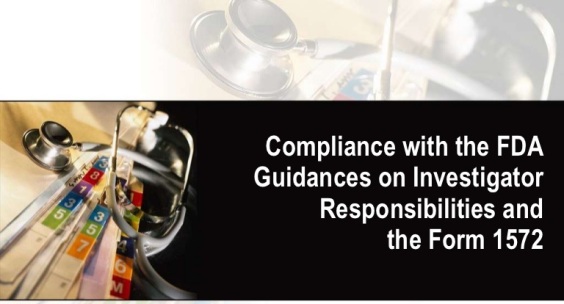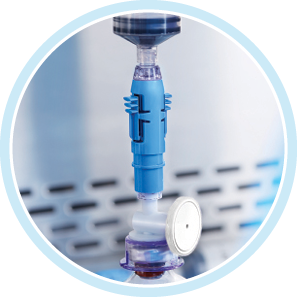The Cutting Edge of Medical Technology Content, Community & Collaboration
Form FDA 1572 is one of the primary documents needed when carrying out a clinical trial. Also called the Statement of Investigator; Form FDA 1572, called just 1572 informally, is a contract between the Principal Investigator (PI) and the FDA. This form contains all details of the subjects, as well as commitments from the PI.
It is a contract in which the Principal Investigator, the person who is in charge of the clinical trial, gives an undertaking to the FDA giving it the assurance that she will comply with all the requirements set out by the regulatory agency with regard to the trial.
By signing the FDA form 1572, which relates to IND studies, or the “Statement of the Investigator, which is meant for IDE studies; the PI is submitting herself to all the appropriate regulations, as this is a legally binding document by which they commit themselves to follow all of these.
The 1572 is meant to serve two important purposes:
It is a way of helping the FDA, as well as the sponsor of the study to qualify the PI, i.e., it gives the FDA and the sponsor of the study the opportunity to understand the Principal Investigator’s qualifications and ability to carry out the research in terms with the purposes it seeks to fulfil. It is also a way to verify that the site at which the clinical study is being carried out is appropriate for the study.

The Form FDA 1572 also has another important purpose to fulfil. It takes an undertaking from the Principal Investigator that the requirements set out by the FDA will be met during the trial. Failure to adhere to these commitments is considered a criminal offence, as something amounting to making false statements, and is liable for legal action under the terms set out in 18 USC 1001. This form has to be submitted whenever the sponsor selects the Principal Investigator to take charge of a clinical trial that is being conducted as an investigational new drug (IND) meets the criteria set out in 21 CFR 312.53 (c).
Other documents
Further, other documents such as 21 CFR 312.50, which deals with the General Responsibilities of Investigators, 21 CFR 812.100, which deals with the Responsibilities of Investigators for Biologics, and 21 CFR 812.110, which deals with the Responsibilities of Investigators for devices, need to be adhered to.
All these documents set out the general and specific responsibilities that the Investigators have when conducting a clinical trial. These start from who can qualify to be considered a PI to what qualification criteria sub investigators and research staff need to have.
A proper understanding of Form FDA 1572
FDA Form 1572 is thus an extremely important document that needs to be complied with fully if the clinical trial has to be considered compliant with the regulatory requirements. A full understanding of all the aspects that go into this will be spelt out at a webinar that Compliance4All, a leading provider of professional trainings for all the areas of regulatory compliance, is organizing.
This webinar educates participants about the due diligence that investigators and their staff about their regulatory and legal responsibilities. Charles H. Pierce, a consultant in the Clinical Research/Drug-Device Development arena, will be the speaker at this webinar. In order to gain complete knowledge of this valuable guidance document, please enroll for this webinar by visiting signs the FDA form 1572

There are nine statements in the FDA form 1572. Seven out of these begin with “I agree”. These are the important elements named in the 1572:
- 21 CFR 50 (Protection of Human Subjects)
- 21 CFR 56 (Institutional Review Boards)
- 21 CFR 312 (Investigational New Drug Application/IND)
- For Device studies, 21 CFR 812 (Investigational Device Exemptions/IDE) is added in place of 21 CFR 312.
The GCP Guidelines of E6 (4) and the Compliance Program Guidance Manual (CPGM) 7348.811 outline additional responsibilities. It makes sense for PI and sponsors to comply with the principles of Good Clinical Practices (GCP), and to also use their common sense.
Charles will give a proper understanding of all these at this webinar. He will cover the following areas at this webinar:
- The Investigators role in the clinical research process
- The difference between AEs and SAEs and the reporting requirements of the investigator
- Why the investigator maintains a list of staff signatures?
- Why the investigator files the signed and dated protocol?
- Why the investigator is responsible for the IC process?
- What is the legal language of the FDA form 1572 or Device equivalent?
- Why is Financial Disclosure information important?
What is the history of the drug / device regulations?
Views: 35
Comment
© 2024 Created by CC-Conrad Clyburn-MedForeSight.
Powered by
![]()
You need to be a member of MedTech I.Q. to add comments!
Join MedTech I.Q.